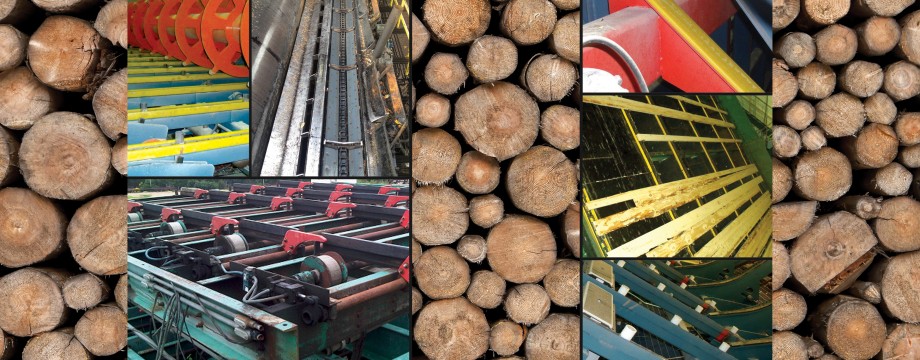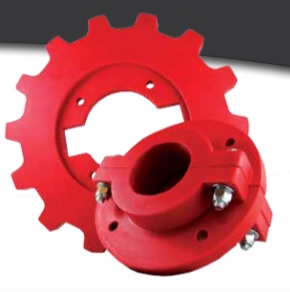Recently we took part in a large expansion of one of our customer’s facilities and Redco plastic solutions were in all of the new machinery; however, for a new sorter our plastic sprockets had been declined in favor of a less expensive steel option. This is, of course, the customer’s choice but there were already clear signs of wear on the sprocket and they were noisy making the use of earplugs compulsory. It was a reminder that sometimes we don’t communicate well enough the advantages and benefits of mating a plastic sprocket to metal chain.
The most important advantage is less wear. When you mate metal to metal the abrasion will prematurely wear the chain and the sprocket’s teeth. Anytime you need to shut down for maintenance or replace parts costs your mill money! The reduced noise is the second benefit. Noise is a hazard and noise reduction should be a priority; however, while plastic-to-metal connections reduce noise, metal on metal increases it.
Many metal sprockets are also solid; however, Redco polyurethane sprockets have a detachable A-plate from the hub. This means when the sprocket’s teeth eventually do wear you only need to purchase new A-plates but not a full sprocket and this saves you money.
Lastly, polyurethane is an elastomer. This means it takes a measure of impact and then rebounds where metal will simply dent. Have you had impact issues affecting your metal sprockets? Polyurethane would make an ideal solution.
Redwood Plastics and Rubber offers a wide variety of split and solid polyurethane sprockets for 81X/H78 chain. Check them out here.


